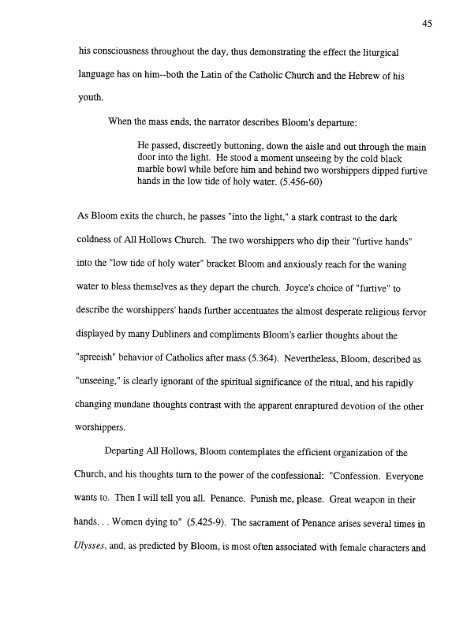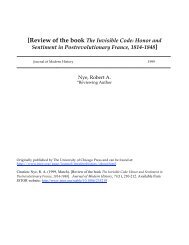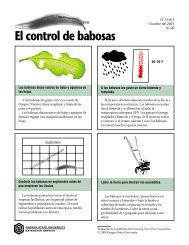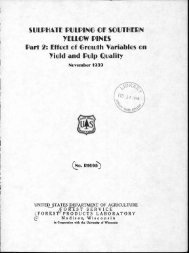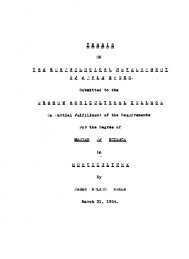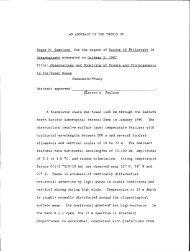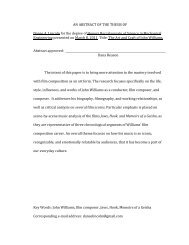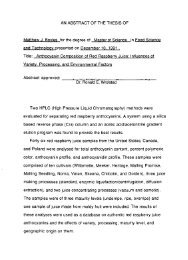Faubourg Saint Patrice - ScholarsArchive at Oregon State University
Faubourg Saint Patrice - ScholarsArchive at Oregon State University
Faubourg Saint Patrice - ScholarsArchive at Oregon State University
Create successful ePaper yourself
Turn your PDF publications into a flip-book with our unique Google optimized e-Paper software.
his consciousness throughout the day, thus demonstr<strong>at</strong>ing the effect the liturgical<br />
language has on himboth the L<strong>at</strong>in of the C<strong>at</strong>holic Church and the Hebrew of his<br />
youth.<br />
When the mass ends, the narr<strong>at</strong>or describes Bloom's departure:<br />
He passed, discreetly buttoning, down the aisle and out through the main<br />
door into the light. He stood a moment unseeing by the cold black<br />
marble bowl while before him and behind two worshippers dipped furtive<br />
hands in the low tide of holy w<strong>at</strong>er. (5.456-60)<br />
As Bloom exits the church, he passes "into the light," a stark contrast to the dark<br />
coldness of All Hollows Church. The two worshippers who dip their "furtive hands"<br />
into the "low tide of holy w<strong>at</strong>er" bracket Bloom and anxiously reach for the waning<br />
w<strong>at</strong>er to bless themselves as they depart the church. Joyce's choice of "furtive" to<br />
describe the worshippers' hands further accentu<strong>at</strong>es the almost desper<strong>at</strong>e religious fervor<br />
displayed by many Dubliners and compliments Bloom's earlier thoughts about the<br />
"spreeish" behavior of C<strong>at</strong>holics after mass (5.364). Nevertheless, Bloom, described as<br />
"unseeing," is clearly ignorant of the spiritual significance of the ritual, and his rapidly<br />
changing mundane thoughts contrast with the apparent enraptured devotion of the other<br />
worshippers.<br />
Departing All Hollows, Bloom contempl<strong>at</strong>es the efficient organiz<strong>at</strong>ion of the<br />
Church, and his thoughts turn to the power of the confessional: "Confession. Everyone<br />
wants to. Then I will tell you all. Penance. Punish me, please. Gre<strong>at</strong> weapon in their<br />
hands. . Women dying to" (5.425-9). The sacrament of Penance arises several times in<br />
Ulysses, and, as predicted by Bloom, is most often associ<strong>at</strong>ed with female characters and<br />
45


